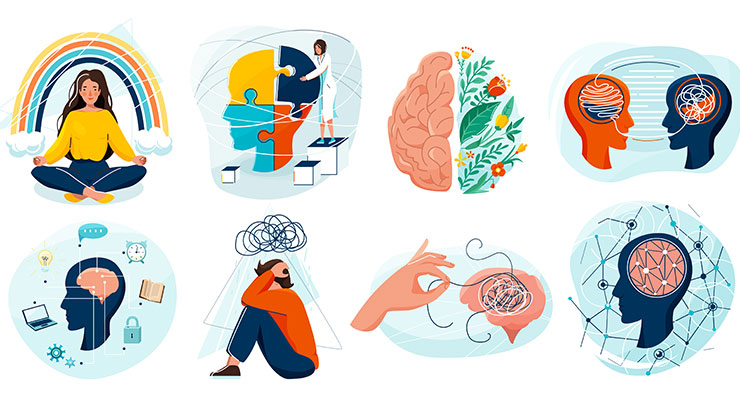Inpatient Mental Health Services Designed for Holistic Care
Inpatient Mental Health Services Designed for Holistic Care
Blog Article
Comprehensive Inpatient Mental Health And Wellness Solutions for Effective Treatment
Inpatient mental health solutions represent an important part of the medical care system, giving a extensive and organized environment for individuals experiencing severe mental distress. These services utilize a multidisciplinary strategy, incorporating various evidence-based treatments to address the complicated requirements of people. Nevertheless, the efficiency of such detailed care prolongs past instant stablizing; it likewise includes the transition to outpatient assistance, a vital stage usually neglected. Exploring the nuances of this continuum reveals substantial ramifications for both individual healing and wider psychological health results. What elements really affect this transition, and just how can we enhance its performance?
Recognizing Inpatient Mental Wellness Solutions
Inpatient psychological health services give vital assistance for people experiencing serious emotional distress that can not be handled effectively in an outpatient setting. These solutions are made to supply an intensive level of treatment in a structured setting, usually within a healthcare facility or specialized center. People admitted to inpatient programs normally show intense signs and symptoms, such as self-destructive ideation, serious depression, or psychosis, demanding continuous monitoring and treatment.
The admission process normally includes a detailed analysis by mental health and wellness experts, who examine the person's psychological state, background, and immediate needs. When admitted, individuals involve in a range of restorative methods customized to their particular needs, consisting of drug monitoring, specific therapy, and group sessions. This holistic approach intends to stabilize the client's condition, advertise safety, and foster coping abilities.
Inpatient mental health solutions not just address immediate wellness problems however also offer as a bridge to recurring treatment. By providing a controlled atmosphere, these services promote the advancement of therapy strategies that can be proceeded in outpatient settings, therefore guaranteeing a continuum of care and enhancing lasting end results for individuals with intricate mental health requirements.
Trick Elements of Effective Treatment
Effective treatment in inpatient mental health and wellness services consists of numerous key components that foster healing and stablizing. An extensive assessment is important to identify the person's specific demands and obstacles. This assessment notifies the development of a tailored therapy strategy, which works as a roadmap for intervention.
An additional essential part is the multidisciplinary group strategy. Partnership among psychoanalysts, psycho therapists, nurses, and social workers makes certain that numerous perspectives contribute to the person's care, enhancing the performance of treatment. Evidence-based therapeutic methods, such as cognitive-behavioral therapy (CBT) and dialectical habits therapy (DBT), are also important, offering organized methods that address maladaptive idea patterns and behavioral problems.

Finally, a focus on aftercare preparation is important to make sure a smooth shift to outpatient services, decreasing the danger of regression and promoting long-term health. These cumulative elements create an efficient therapy framework within inpatient mental health solutions.
Advantages of Comprehensive Care

Thorough care in inpatient mental health services provides various advantages that substantially boost person end results. Among the primary benefits is the alternative approach to treatment, addressing not just the mental symptoms but additionally the physical, social, and psychological needs of individuals. This detailed analysis permits for customized treatments that advertise general wellness.
An additional advantage is the combination of multidisciplinary groups, which fosters partnership amongst health care experts. This joint atmosphere makes certain that people obtain worked with treatment, lowering the threat of fragmented therapy and boosting interaction amongst caregivers. Additionally, detailed care helps with continuity go to my site of services, enabling seamless transitions from inpatient to outpatient setups, which is critical for lasting healing.

Last but not least, the organized setting of thorough inpatient treatment gives a safe room for patients to participate in healing tasks, assisting them develop coping strategies and strength. Jointly, these benefits contribute to more reliable treatment and enhanced lifestyle for individuals experiencing psychological health situations.
Evidence-Based Restorative Strategies
In the realm of mental wellness treatment, evidence-based healing strategies play an essential function in guaranteeing that individuals obtain reliable and clinically supported interventions. These methods incorporate the most effective readily available research study with clinical proficiency and person worths, fostering a customized treatment experience that resolves private needs.
Cognitive Behavior Treatment (CBT) is one of the most extensively recognized evidence-based techniques, concentrating on identifying and changing unfavorable idea patterns and actions. This structured method has actually shown efficacy in treating conditions such as depression, ptsd, and anxiousness. Dialectical Habits Therapy (DBT) is particularly efficient for individuals with borderline individuality problem, stressing the advancement of emotional policy and interpersonal effectiveness skills.
Additionally, drug administration is typically an important element of evidence-based treatment, as psychotropic medications can reduce symptoms and improve total performance. Collective care models, which involve multidisciplinary groups, even more enhance the efficacy of inpatient solutions by making certain detailed examinations and continuous monitoring.
Inevitably, the combination of evidence-based therapeutic approaches not just advertises positive medical end results yet likewise empowers people, promoting a sense of firm and durability in their psychological health and wellness journeys.
Transitioning to Outpatient Assistance
The change from inpatient mental wellness solutions to outpatient support notes a crucial stage in an individual's recovery trip. This period needs cautious preparation and sychronisation to ensure continuity of treatment and to alleviate the risks of relapse or situation. Efficient discharge preparation ought to start early in the inpatient stay, entailing a multidisciplinary team that consists of psychoanalysts, psychologists, registered nurses, and social workers.
Crucial element of a successful change include the advancement of a detailed aftercare strategy customized to the individual's certain needs. This plan must outline follow-up visits, drug management, and restorative treatments, as well as identify neighborhood sources and support teams that can promote continuous healing.
In addition, patient and household education is crucial during this phase. Comprehending the signs of possible setbacks and the relevance of adhering to treatment can encourage individuals and their assistance systems.
Regular follow-up and reassessment of the outpatient plan are vital to attend to progressing challenges. By promoting a collective relationship between inpatient and outpatient suppliers, the possibility of continual recuperation rises, ultimately boosting the patient's high quality of life and reducing the risk of readmission.

Conclusion
In summary, comprehensive inpatient mental health solutions use a crucial structure for attending to extreme mental distress with a multidisciplinary approach. By incorporating evidence-based treatments, cultivating an organized setting, and advertising family involvement, these services improve therapy performance. The focus on stability and the advancement of coping abilities not just help in prompt recuperation yet also facilitates a smoother shift to outpatient care. Eventually, such detailed treatment is crucial for lasting psychological wellness and well-being.
The admission process usually involves a thorough analysis by psychological health and wellness professionals, who review the person's mental state, history, and prompt demands.Efficient more information treatment in inpatient psychological wellness services comprises numerous crucial elements that foster recuperation and stablizing.Detailed care in inpatient mental wellness visit this website services offers countless benefits that considerably enhance individual results.The transition from inpatient psychological health solutions to outpatient support notes a crucial stage in an individual's recovery trip.In summary, thorough inpatient mental health services offer a necessary framework for resolving severe emotional distress through a multidisciplinary technique.
Report this page